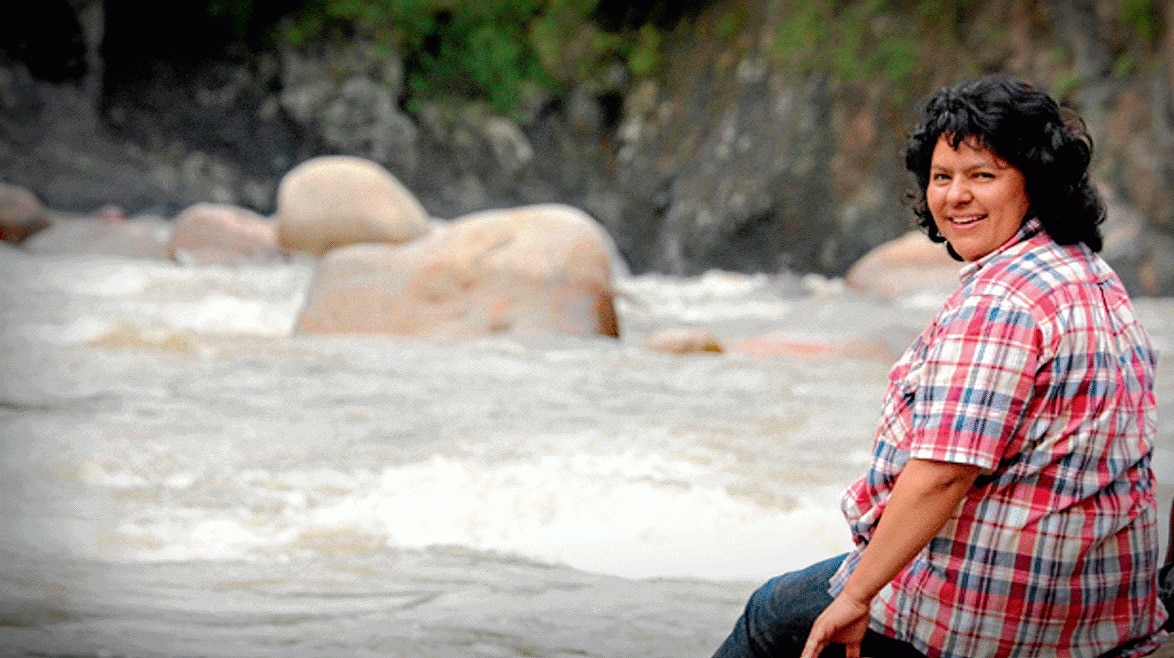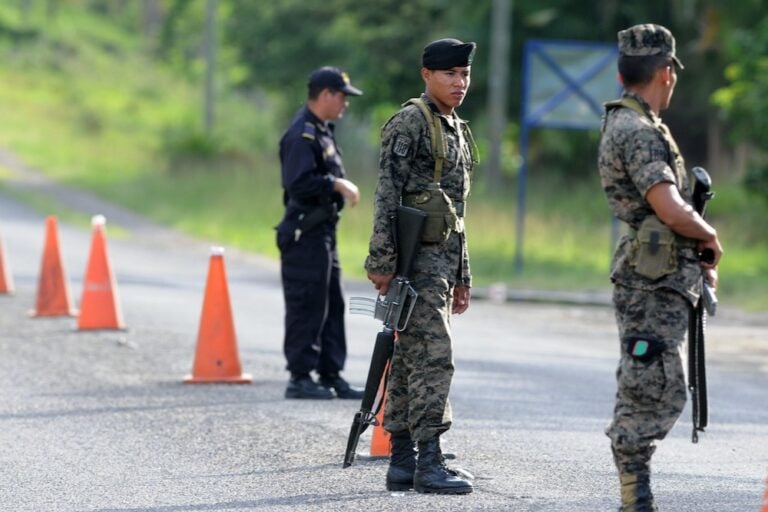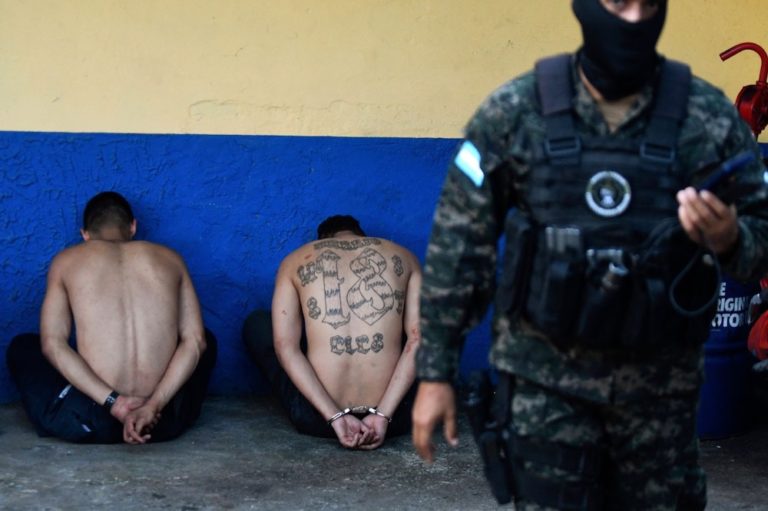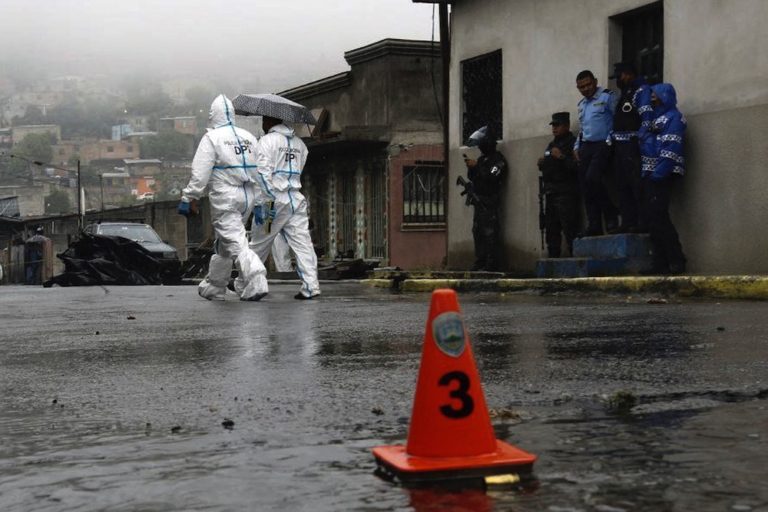At the time of the assassination, Berta Cáceres was leading an opposition movement against the Agua Zarca hydroelectric project on the Gualcarque river.
The following is a translation of an article that was originally published on the clibrehonduras.com on 3 March 2016.
Berta Cáceres, the coordinator of the Council of Popular and Indigenous Organisations of Honduras (Consejo Cívico de Organizaciones Populares e Indígenas de Honduras, COPINH) and winner of the 2015 Goldman Environmental Prize, was assassinated at 12:45 a.m. on Thursday, 3 March 2016, inside her home in the municipality of La Esperanza, Intibucá department, western Honduras.
According to local media sources, individuals who arrived in a white vehicle entered Cáceres’s home and shot her in the face and chest.
Intibucá Congressman José Vásquez said that Cáceres always slept in different locations because she knew her life was in danger. Cáceres had been granted precautionary measures by the Inter-American Commission on Human Rights (IACHR) since 2009.
In a press conference, Security Minister Julián Pacheco said that Cáceres had not been provided with security measures because she had rejected that option. The Center for Justice and International Law (CEJIL), however, refuted Pacheco’s assertion, highlighting instead the inadequate protection that was provided.
At the time of the assassination, Cáceres was leading an opposition movement against the Agua Zarca hydroelectric project on the Gualcarque river. The National Congress gave the Honduran Energy Development company (Desarrollos Energéticos S.A., DESA) approval for the project without respecting the affected communities’ right to a process of open and informed prior consultation.
Within this context, Cáceres and other COPINH members came under constant attack and were threatened by individuals linked to the project, according to CEJIL.
C-Libre has issued 18 alerts on behalf of COPINH since 2011. The most recent alert was published on 4 February 2016, when Cáceres reported that Presidential Honour Guard officers attacked Rolando Gutiérrez y Selvin Milla, members of the Voz Lenca and Radio Guarajambala community radio stations, while they were covering a political event hosted by First Lady Ana García.
Likewise, on 16 July 2013, C-Libre reported that COPINH requested that the IACHR grant precautionary measures to Lenca indigenous communities living along the Rio Blanco river in the department of Intibucá. At that time, Cáceres said that the urgent request for precautionary measures was linked to the case of Lenca Indigenous Council representative Tomas García, who was executed by members of the Honduran army on 15 July 2013 in the community of El Achotal, Río Blanco, Intibucá. García’s assassination took place near the main entrance to DESA and Sinohydro company facilities, as residents from the Rio Blanco area were preparing to stage a peaceful demonstration.
Honduran Communications Minister Hilda Hernández said, via Twitter, “We lament the assassination of Berta Cáceres and call for her death NOT to be politicized. We sympathise with her family.”… “Only hotheads and political opportunists believe that the government has anything to do with Berta Cáceres’s death.”



